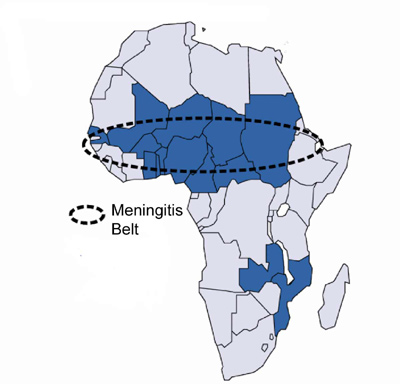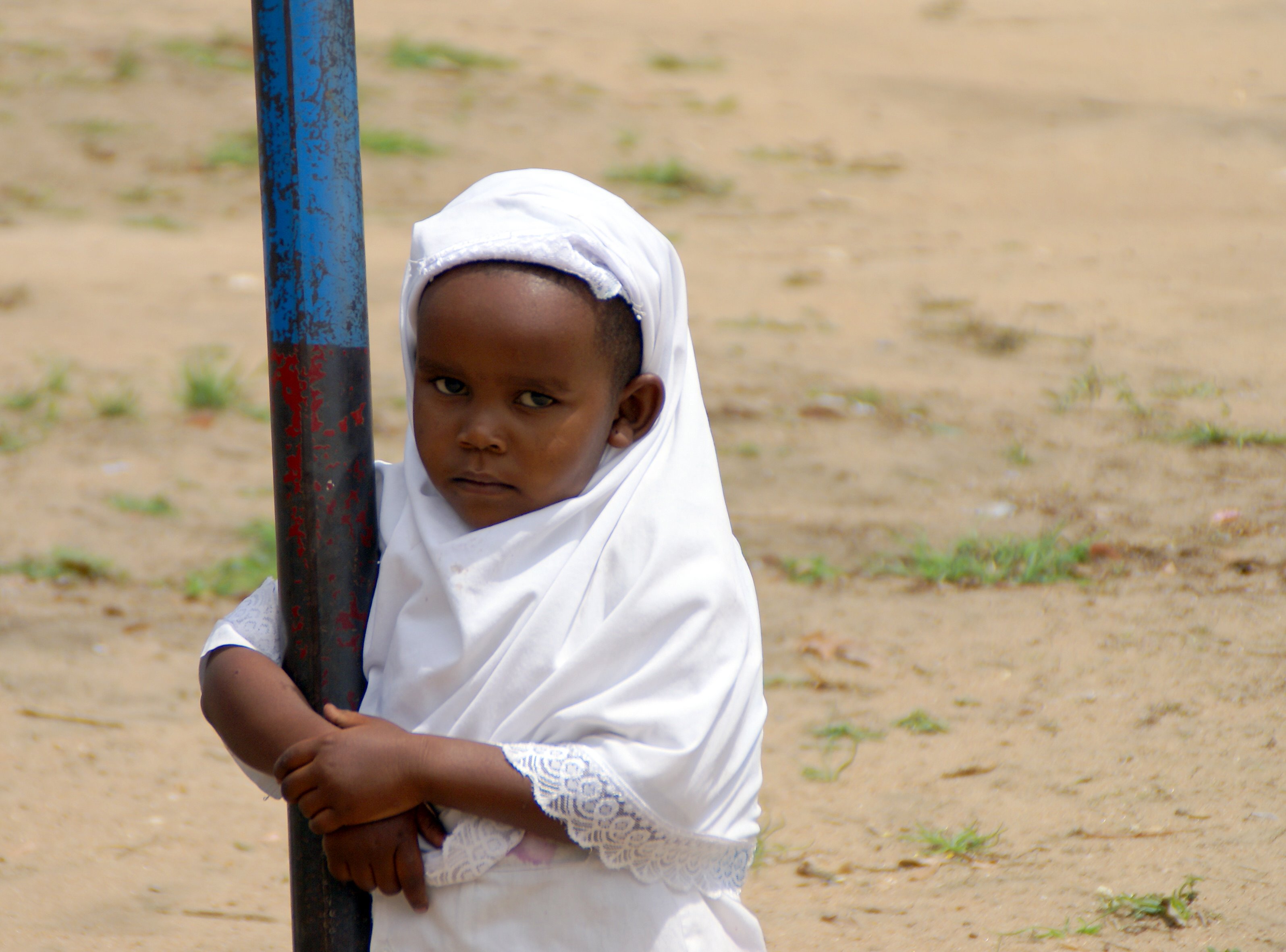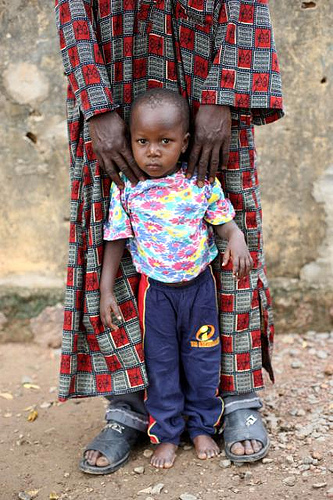
Meningitis is an awful disease. It comes on suddenly, kills frequently, disables its survivors for life, and devastates families economically and emotionally. When it occurs in epidemics, as it does frequently in Africa's "Meningitis Belt", it has the power to disrupt entire communities and health systems (see recent blogs).

But bacterial meningitis does not have to continue to be a major health problem in Africa, or anywhere for that matter. The leading causes of bacterial meningitis -- known as Hib, pneumococcus, and meningococcus -- all have safe, effective vaccines. The most recent addition to this set is an inexpensive meningococcal conjugate vaccine against serogroup A meningitis that was born out of a partnership between the World Health Organization, Seattle-based PATH, and an India-based vaccine manufacturer, the Serum Institute of India.
- Hib is the most common cause of childhood meningitis;
- Pneumococcus is the most severe cause of meningitis;
- Meningococcus is the most common cause of epidemic meningitis.

The single biggest obstacle to stamping out bacterial meningitis in Africa is the lack of funds to purchase these vaccines. There is also a need for better delivery systems in some areas, and improved disease surveillance everywhere -- but these obstacles don't really come into play if there is no money to buy the vaccines in the first place.
Recognizing this challenge, The Guardian's Sarah Boseley recently asked, "Who will pay to end meningitis?" in her blog:
A new, cheap meningitis vaccine has been approved by the World Health Organisation and will be rolled out in the three worst-affected countries of the African meningitis belt in the autumn. But nobody yet knows where the money will come from to protect the rest.
While she poses an important question, she leaves it to others to answer it. As yet, this question remains unanswered.
The thrust of Boseley's blog is that the GAVI Alliance should pay for these vaccines. This seems like an obvious solution, right? After all, thanks to support from the GAVI Alliance, millions of children are already receiving the Hib and pneumococcal meningitis vaccines. In fact, just next week GAVI is supporting rollout of the new meningitis A vaccine in Burkina Faso, Mali and Niger.

But much more funding is needed to bring these vaccines to all the people in Africa who need them. About $475 million is needed to cover Africa with the new meningitis A vaccine.
Stopping meningitis epidemics makes good sense on many levels -- health, economic, and humanitarian among them. Perhaps we need to approach this issue from a different angle, however: one of self-interest. This program is a 'slam dunk' to be an overwhelming health success, so whoever answers this call and buys the meningitis A vaccine will become an instant hero to millions of Africans.
Are there any governments, organizations, or wealthy individuals out there looking to win the "hearts and minds" of millions of people, most of whom are Muslim? If so, you might want to think about buying this vaccine. Without mass meningococcal vaccination, it is not a matter of if the next meningitis epidemics will come, it is a matter of when -- and they will continue to devastate the communities of the Meningitis Belt.
So, like Forgetting Sarah Marshall let's try "Answering Sarah Boseley." Her question -- who will pay -- deserves an answer. If you've got one, please post it here on this blog or in a tweet with hashtag #answerSarah.
